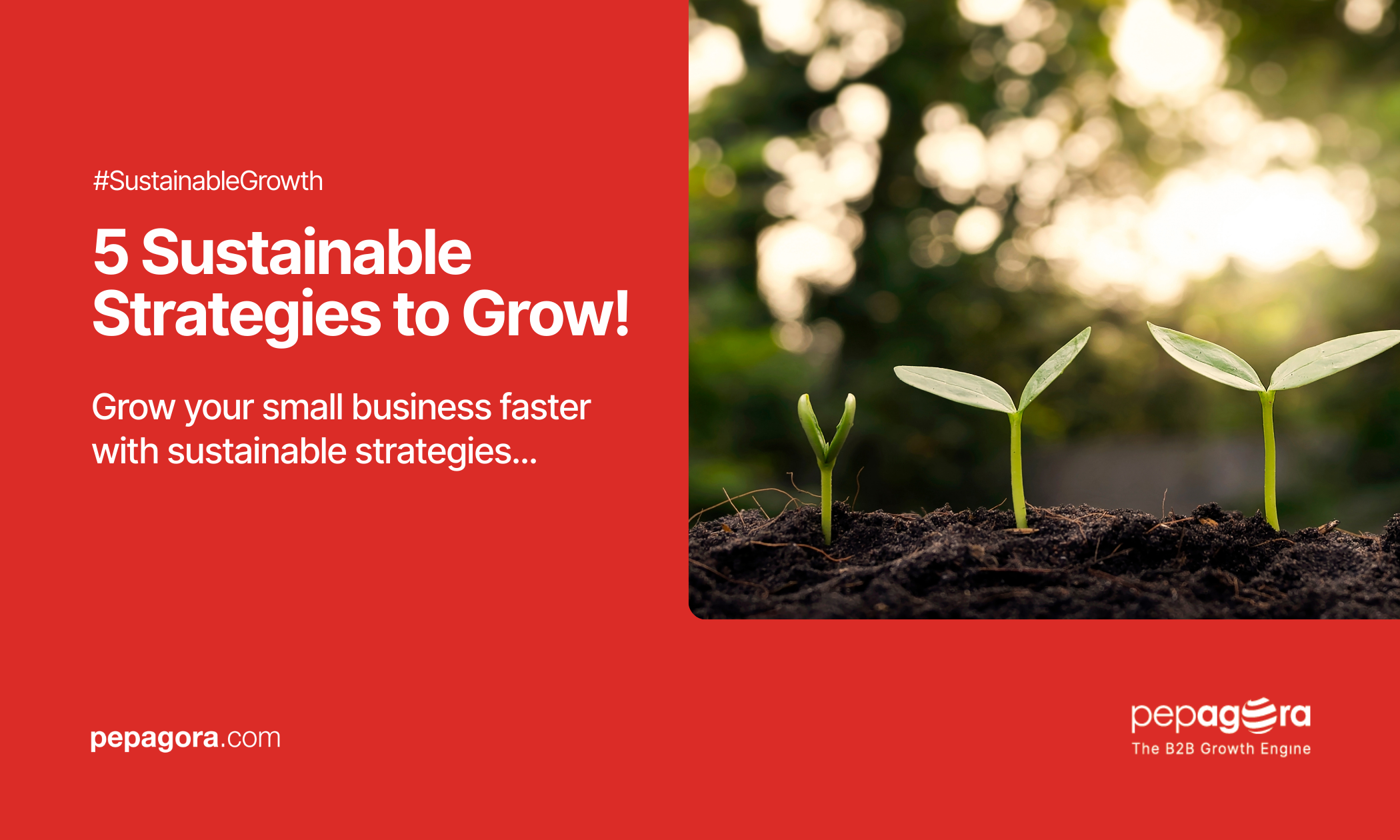
5 Sustainable Strategies to Grow a Small Business
Growing a small business today demands more than just boosting revenues it requires cultivating resilience, ethical integrity, and long-term value for all stakeholders. Sustainable growth harmonizes financial performance with environmental responsibility, social equity, and operational durability.
Following a holistic approach ensures your business not only thrives today but remains viable and respected in the future. This blog will elaborate on five such strategies and how they interrelate. By implementing them, small businesses can achieve consistent growth while maintaining integrity, customer-centricity, empowerment, trust, and meaningful impact values that closely align with your brand’s mission.
1. Cultivate Employee‑Driven Innovation and Inclusive Culture
Why It Matters:
Your employees engage with customers, spot inefficiencies, and touch the pulse of daily operations. Empowering them to propose innovation fosters ideas that are both practical and cost-effective.
Research shows companies with highly engaged employees outperform competitors by over 200%. When small businesses tap into this wellspring of ideas, they unlock sustainable engines of growth.
Practical Steps:
Idea collection systems: Set up regular brainstorming sessions, suggestion platforms, or innovation forums.
Reward mechanisms: Recognize and reward employees whose ideas translate into measurable impact.
Cross-functional teams: Encourage collaboration across roles to turn ideas into actionable solutions.
Embedding this culture aligns your team with your mission and long-term vision—empowering your workforce while reinforcing trust and growth.
2. Strategic Planning with SMART Goals and Performance Tracking
Why It Matters:
Approximately half of small business failures stem from poor planning. A growth plan anchored in clear, measurable objectives ensures alignment, accountability, and adaptability.
SMART goals Specific, Measurable, Achievable, Relevant, Time‑bound create a reliable roadmap.
How to Implement:
Define long‑term vision: Clarify where you want to be in 3‑5 years; align your team and resources accordingly.
Set SMART goals: For example, “Increase customer retention by 15% in 12 months.”
Use performance indicators (KPIs): Track revenue growth, customer acquisition cost, conversion rates, among others.
Review and pivot: Regularly evaluate performance and adjust your tactics as needed.
This disciplined method builds trust internally and externally through transparency and consistent execution.
3. Embrace Sustainable and Socially Responsible Practices
Why It Matters:
Sustainable strategies that consider environmental, social, and governance (ESG) factors not only protect resources but also drive brand reputation, efficiency, and stakeholder trust.
Sustainable business strategies integrate long‑term value for society, the environment, and the economy.
Implementable Tactics:
Adopt green operations: Reduce energy use, switch to sustainable packaging, minimize waste.
Develop eco-conscious products: Use cradle-to-cradle design or sustainable materials.
Local community engagement: Partner with social enterprises, involve employees in community projects, or support local suppliers.
Such practices resonate with customers and partners who value authenticity and ethical stewardship reinforcing your brand values of integrity, customer‑centricity, and impact.
4. Focus on Sustainable Customer Acquisition and Retention
Why It Matters:
Growth isn’t just gaining new customers but retaining existing ones. Sustainable acquisition strategies ensure long-term profitability and brand loyalty. Targeted marketing and retention efforts prevent overextension while ensuring quality service.
Key Actions:
Define ideal customer profiles and use data-driven marketing to reach them.
Balance acquisition and retention: Implement loyalty programs, personalized services, and strong support systems.
Gather customer feedback consistently through surveys, reviews, and direct communication to refine offerings.
When done thoughtfully, these methods foster trust and encourage repeat business crucial for sustainable growth.
5. Invest in Scalable Systems and Operational Efficiency
Why It Matters:
Scalability the capacity to grow revenue while controlling costs is the bedrock of sustainable expansion. Without efficient systems, growth often leads to inefficiencies, poor customer service, and burnout.
Practical Implementation:
Adopt automation tools: CRM platforms, accounting software, and automated payroll systems boost efficiency.
Streamline operations: Map workflows, eliminate bottlenecks, and standardize processes.
Enable scale without compromise: The systems you invest in now should support growth while maintaining quality and performance.
Robust operations support your promise of trust and reliability, enabling consistent service as you grow.
Final Takeaway:
Sustainable business growth is not just about profits it’s about creating long-term value through people, processes, and principles. By implementing these five strategies innovation, planning, ESG practices, customer balance, and scalability you prepare your small business for resilience and impact. Visit the Pepagora Blog for more insights and strategies tailored for small businesses.
Platforms like Pepagora further strengthen this journey by offering SMEs free basic catalogs, buyer connections, and visibility on a trusted B2B marketplace. When combined with sustainable strategies, Pepagora becomes a reliable growth partner for businesses aiming to thrive globally while staying true to their values.
FAQs: Sustainable Strategies to Grow?
Sustainable growth means increasing revenue and market presence without compromising ethical, social, or environmental standards. It requires strategic planning around ESG principles, operational efficiency, customer satisfaction, and workforce engagement.
B2B Platforms like Pepagora support SMEs with free catalogs and marketplace visibility to enable this growth.
Provide clear channels for idea submission—like suggestion boxes or workshops—for frontline staff to suggest improvements. Recognize successful ideas, form cross-functional teams to explore them, and integrate innovation into company culture.
Leveraging communities on Pepagora Blog can also inspire innovation from industry trends.
Examples include using eco-friendly packaging, reducing energy usage, sustainable product design, and supporting local communities.
These practices align businesses with modern customer values. Pepagora highlights such success stories, showcasing how SMEs use responsible strategies to attract global buyers.
Acquiring new customers grows your base, but retention reduces cost per acquisition and boosts lifetime value. Loyalty programs, excellent customer service, and personalized outreach help you retain customers.
With Pepagora’s marketplace model, businesses can build long-term relationships with both local and international buyers.
Systems like CRM, automation, and structured workflows enable businesses to grow without overextending resources.
They help maintain service quality, reduce errors, and support expansion efficiently. On platforms like Pepagora, SMEs can scale their visibility without additional costs, using free catalogs as a scalable digital tool.
Pepagora
B2B Growth Engine
Don't miss out! Join the Pepagora community! Follow us on social media for exclusive content and tips.


